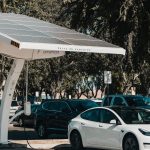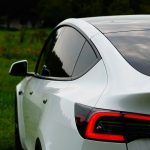In an ongoing exchange between Tesla and the Indian government, officials have made it clear that the electric vehicle (EV) giant will receive “no separate policy” treatment. Tesla’s quest to penetrate the Indian market has been met with firm governmental policies, with no indication of an impending partnership despite CEO Elon Musk’s rapport with Prime Minister Narendra Modi.
Stalemate over Import Duties and Local Manufacturing
The core of the standoff lies in Tesla’s intention to gauge market interest through imported vehicles and India’s insistence on a local factory commitment before considering a reduction in import duties. The Indian government remains steadfast in its stance, offering no concessions on import taxes or specific advantages unique to Tesla, aligning with the treatment of other companies.
No Special Concessions for Tesla
Krishan Pal Gurjar, the Union Minister of State for Heavy Industries, reiterated the government’s position in response to a parliamentary query, stating that Tesla benefits from no distinct incentives. Instead, the company could participate in the Production Linked Incentive (PLI) Schemes, which promote advanced automotive technology and battery production in India.
While the initial PLI scheme closed, Tesla may still apply for the National Programme on Advanced Chemistry Cell Battery Storage, another initiative designed to bolster India’s manufacturing capabilities. These programs align with the “Make in India” campaign, which seeks to enhance domestic manufacturing, create jobs, and solidify the nation’s economic foundation.
Tesla’s reluctance to commit to significant investment without demand certainty, coupled with domestic EV manufacturers’ opposition to any easing of governmental pressure, further complicates the firm’s entry into the Indian market.
India’s focus on self-reliance through domestic production continues to be a significant barrier for Tesla’s aspirations in the region, with no signs of policy changes catering to the automaker’s preferences.










